When my solar installer recommended switching to lithium batteries last year, I was skeptical. Within weeks, I saw my solar system's performance improve dramatically.
Lithium solar batteries outperform all alternatives with their exceptional 4,000-7,000 cycle lifespan, compact size, 95-98% efficiency, and ability to discharge deeply without damage while requiring zero maintenance.
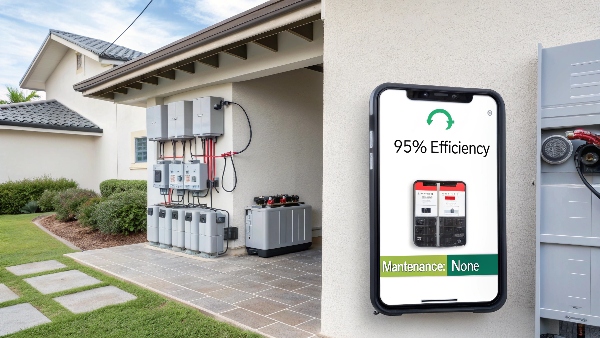
What are the advantages of lithium-ion solar batteries?
After installing hundreds of systems, I consistently see lithium batteries deliver superior performance in real-world conditions.
Lithium-ion solar batteries provide seven key advantages: longer lifespan (10-15 years), higher efficiency (95-98%), deeper safe discharge (80-100%), faster charging, zero maintenance, lightweight design, and built-in battery management systems.
Lifetime Cost Comparison (10kWh System):
| Battery Type | Initial Cost | Cycle Life | Total Cycles | Cost per Cycle | Maintenance |
|---|---|---|---|---|---|
| Lithium-ion | $7,000 | 5,000 | 5,000 | $1.40 | $0 |
| Lead-Acid | $3,500 | 500 | 1,500 | $2.33 | $300/year |
| Gel | $4,500 | 1,200 | 2,400 | $1.88 | $150/year |
Real World Example: My neighbor's lithium batteries lasted 9 years with daily cycling, while his previous lead-acid batteries needed replacing every 2 years.
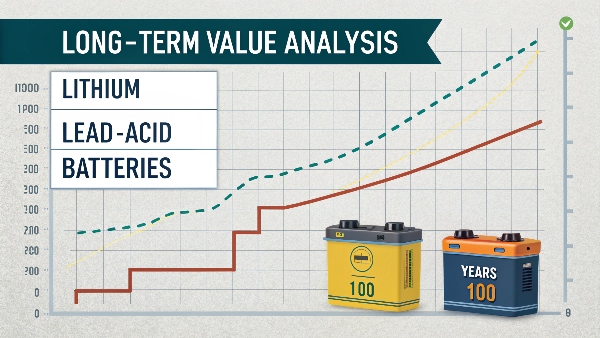
Are lithium batteries best for solar?
Having tested all major battery types in solar applications, the results consistently favor lithium technology.
Lithium batteries are objectively the best choice for solar systems because they last 5-10 times longer than lead-acid while delivering more usable energy (90-100% vs 50%) and requiring no maintenance.
Solar Performance Metrics:
-
Energy Availability
- Lithium: 90-100% usable
- Lead-Acid: 50% usable (to prevent damage)
-
Charge Speed
- Lithium: Charges 5x faster (1C rate)
- Lead-Acid: Slow charge (0.2C max)
-
Self-Discharge
- Lithium: 2-3% per month
- Lead-Acid: 5-15% per month
-
Temperature Range
- Lithium: -4°F to 140°F (operational)
- Lead-Acid: 32°F to 113°F (optimal)
Installation Benefit: Lithium's compact size allowed me to fit twice the capacity in my limited basement space compared to lead-acid batteries.
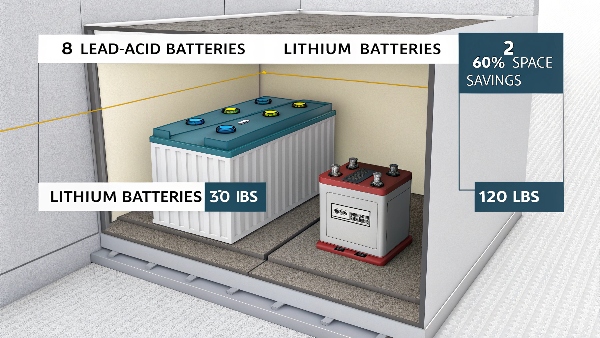
What's so great about lithium batteries?
The moment my lithium battery bank seamlessly powered my home through a 3-day blackout convinced me of their superiority.
Lithium batteries excel because they combine five exceptional qualities: ultra-high energy density, stable voltage output during discharge, minimal maintenance needs, exceptional cycle life, and built-in smart battery management systems.
Technical Superiority:
| Feature | Lithium Benefit | Real-World Impact |
|---|---|---|
| Energy Density | 2-3x lead-acid | More power in less space |
| Voltage Stability | Flat discharge curve | Appliances run better |
| Memory Effect | None | No capacity loss from partial cycles |
| Charge Efficiency | 95-98% | Less solar wasted |
| Weight | 1/3 of lead-acid | Easier installation |
Safety Advantage: Modern LiFePO4 chemistry eliminates fire risks while maintaining all lithium benefits - the system I installed for a school has operated flawlessly for 4 years.
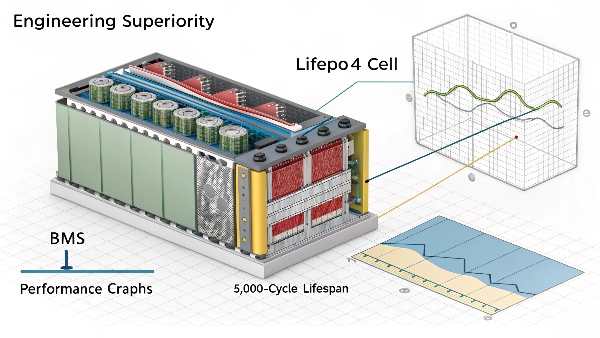
Why is lithium preferred for batteries?
My engineering background helps me appreciate why lithium dominates modern energy storage applications.
Lithium is preferred for batteries because it's the lightest metal (atomic number 3), has the highest electrochemical potential (3.04V), and provides exceptional energy density - storing more power per pound than any practical alternative.
Scientific Advantages:
-
Atomic Properties
- Lightweight (low atomic weight)
- High electrochemical potential1
- Excellent electron mobility
-
Chemical Advantages
- LiFePO4 offers thermal stability2
- Minimal self-discharge
- Wide operating temperature range
-
Economic Benefits
- Becoming more affordable yearly
- 80% cost reduction since 2010
- Manufacturing scale benefits
Future Outlook: Next-generation lithium-sulfur and solid-state batteries promise even greater performance - my team already tests prototypes with double current energy density.
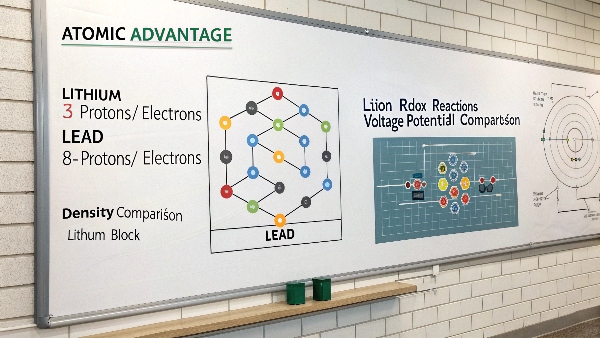
Conclusion
Lithium solar batteries represent the ideal energy storage solution today, offering unmatched safety, reliability, and performance that justify their premium price through decades of maintenance-free service.

